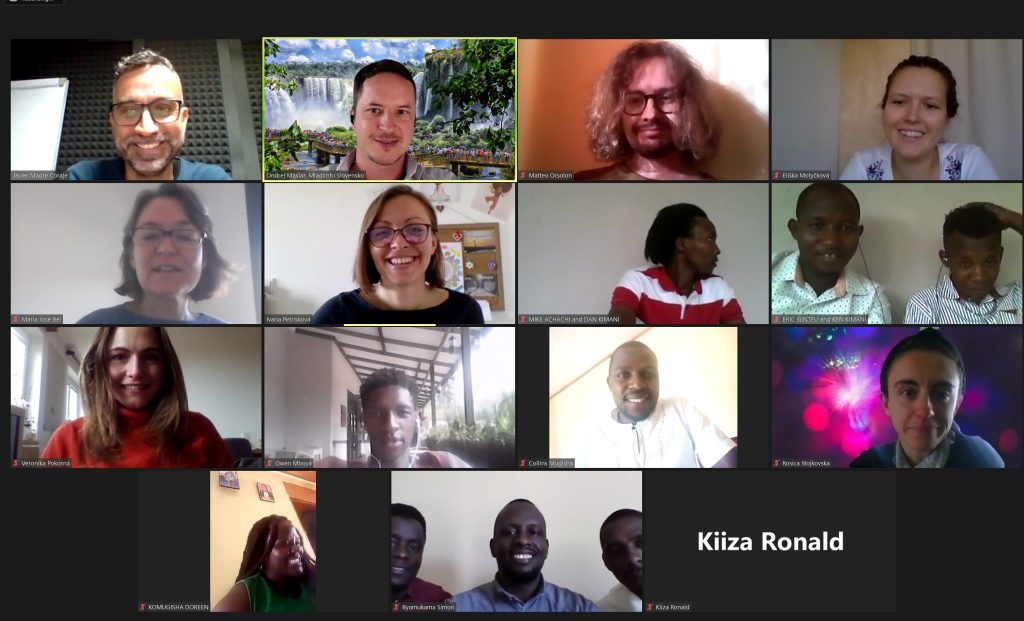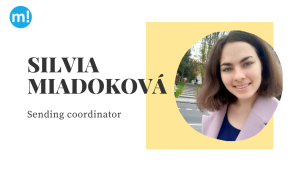
Between 15 and 19th November training of youth workers organized under the project REACH – Responsible European and African Changemakers took place online. The online training covered six broad topics: Needs Assessment, Intercultural Communication, Logistics & Volunteering Management, Mentorship & Feedback, Crisis Management and, Integration & Security. It prepared participating organizations for the next project phase – volunteering mobilities.
The training stived to connect organizations from different countries and share among them the best practice to youth education and training as well as collectively develop new ones. The project was co-funded under Erasmus + programme, the European Union Programme for Education, Training, Youth and Sport.
Online training aimed to connect participating organizations and allow them to prepare for the upcoming mobilities. During 5 days throughout which 10 sessions were planed participants covered all the topics mentioned above. The atmosphere throughout the whole training was friendly and relaxed, though productive and creative.
While we all know that in the online space it is sometimes harder to gain connections and friendships, during the training days we managed it. First day, there was a space for getting to know each other and later we learned even more about one another through numerous break-out-rooms sessions. During the breaks, participants talked about themselves, their hobbies and families, their experiences with volunteering and traveling and we all shared interesting information about our cultures and traditions.

The first day was dedicated to Needs Assessment & Intercultural Communication. For the start, the participants introduced themselves via jamboard and sticky notes. Afterwards, members of the organization Madre Coraje prepared both sessions for the day and presented their experiences and knowledge about the needs’ assessments, why and how to conduct it. Later on, participants learned a lot about other cultures and differences among them. Moreover, the partakers managed to refute some of the stereotypes and assumptions about different cultures and countries and they learned that despite our assumptions the weather: in general, it is not too hot in Uganda and the temperatures rise only rarely above 29 degrees Celsius and Kenya does not have poor public transportation.
The second day, Mladiinfo Slovakia covered the topic of Volunteering Management. Those present learned more about European Solidarity Corps (ESC) volunteering philosophy, the difference between paid staff and volunteers, and the selection process of volunteers. The session was very practical as participants were asked to find volunteers who would be a good fit for a particular volunteering position and also assign potential volunteers specific tasks. In the same session a current topic of high importance was discussed, Covid-19. As it is a topic, which does intervene with the lives of volunteers and organizations, duri we tried to approach it realistically and we talked about Covid-19 precautions as well as pandemic situations in our countries. After lunch, YOVCOD Kenya took a lead in the session. Logistics of placement procedures were presented along with the examples from experience.
Wednesday marked the middle of REACH training. Topics like Mentorship, Feedback, Progress and Monitoring were approached. Partakers found out the difference between mentor, supervisor, coordinator as well as learned how to give and receive feedback and enhance storytelling during and after mobility. There were various role plays, which should help participants who will be responsible for the volunteers to guide and mentor them more effectively, communicate with them better as well as give them constructive and honest feedback.
During the sessions on the fourth day, Mladiinfo International introduced the topic of Crisis. We covered different types of crises that could occur during the volunteering mobility and how to approach, prevent and deal with it. In the afternoon case studies from YOVCOD Kenya on crises were presented and participants created a plan for crisis management.
Two final sessions Debriefing and Conclusion and Training Evaluation took place on the fifth day. We drafted info packs for volunteering mobilities, call for action and went through various materials which will be needed for the admission process of volunteers. Moreover, all organizations agreed on the selection process which will be administered once projects start.
After the final sessions, we asked participants to evaluate mobility and write feedback. We were pleasantly surprised that almost 77% concluded the overall value of the project was excellent. Only 15% claimed it was good and about 8% thought it was satisfactory.
The contents and learnings have been very valuable, but even more valuable has been being able to get to know other organizations better and, especially, the people who make them up. All this has allowed us to feel that we are not only participating in the REACH project, but that it is one of ours. Despite having spent many years sending volunteers to third countries, we were unaware of the role of the mentor. Thanks to this training we are going to incorporate it into our international volunteering experiences.
The best thing about training is it provided me with the knowledge and resources to complete work independently and effectively.
This training was very participatory, and I never felt bored. Big applause to the facilitators, who managed such a challenge to involve different participants with different backgrounds, experience and expectations. It is a nice example that YES, everyone can cooperate if they want to.

